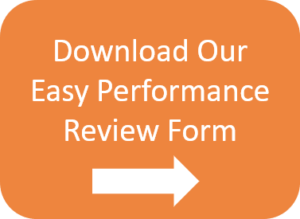Why Annual Performance Reviews Don’t Work

Performance Reviews have been an integral part of the employee management process for many years. The importance of checking in with employees on their performance is important on many fronts. However, if they never get done because it’s too big of a process, or if they are so infrequent that they miss important changes in the workplace and in individuals, is it time to end this practice? Let’s explore:
Annual reviews are challenging for any manager or business, especially if we wait for a specific time each year and try to get them all done at the same time. Today’s employees want frequent feedback, open communication, and collaboration with their fellow workers. One study has shown that there is a very negative effect as a result of annual performance reviews. Many employees want to know sooner than later as to how they are performing and expectations are not always met, because too much time has passed since last review.
To empower employees, more frequent and informal reviews or “check-ins” can be far more effective  than annual reviews. More frequent reviews can allow for more focus on positive issues as way of motivation, but never be afraid to glossing over areas an employee needs to improve. Finding the right balance is key, and being brutally honest on both sides of the spectrum is important.
than annual reviews. More frequent reviews can allow for more focus on positive issues as way of motivation, but never be afraid to glossing over areas an employee needs to improve. Finding the right balance is key, and being brutally honest on both sides of the spectrum is important.
Here are some suggestions to make frequent reviews easier to accomplish:
1. Don’t wait for an “annual review”. Hold informal reviews every couple months and don’t necessarily use a standard Performance Review format. Simply talk to your employee, ask them how they are doing, how they feel about the company and their position, make a two-way conversation. Be honest and let them know how they’re doing. Keep it constructive
2. Make a record of the meeting. Any sort of performance review should be documented, whether they are negative or positive. This is important because memories are not always the most reliable things, and future problems with an employee may need to be traced back to previous reviews.
3. Fear not the negative. If the employee is failing or underperforming in a specific area or areas, be honest, communicate it to the employee and be clear what the problem is and how they need to correct it. Failing to mention negative performance now, my make future employment actions more challenging as the employee could claim “no one ever told me”.
4. Be sure to balance criticism. Being honest with employees is important, but if the employee is underperforming in one area when other areas are up to par, be sure to balance the negatives with positives: “I really appreciate how hard you are working and the results you are getting but I notice that you’ve been a little hesitant to take charge of….”. You get the picture.
5. Use criticism constructively. When informing an employee of any negative work performance, be sure to do this constructively. It’s fine to bring up underperformance, but then you must lay out a clear expectation of what the employee should be doing, and how they should do it. Leave nothing open to interpretation, be clear so the employee walks away with a solid goal to improve. You want results! So be clear as to what those results look like.
6. Allow the employee to “self evaluate”. If necessary, ask them to return for a follow-up meeting 1-2 days after to discuss any concerns.
End on a positive note. A good performance review ends with all parties feeling empowered and optimistic about the future. Goals and expectations should be clear. And unless you’ve put the worker on notice, he or she should leave feeling like an important and valued member of your team.
For assistance with setting up a solid performance review plan in your business, contact the experts at Infinium HR at info@infiniumhr.com.
